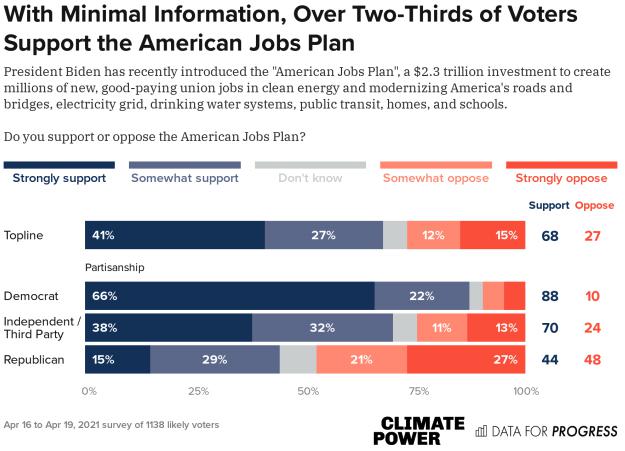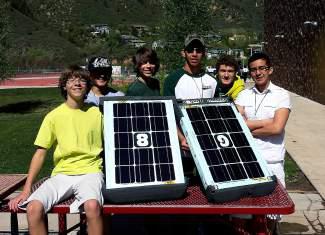When it comes to taking steps to fight climate change, Americans broadly support six key Biden administration proposals meant to transition the U.S. to renewable sources of energy, according to a Gallup poll released Monday.
Each of the six proposals was part of President Biden's Build Back Better bill, which received no support from Republican lawmakers and was effectively killed when Sen. Joe Manchin, D-W.Va., refused to back it.
Asked if they favored or opposed "providing tax credits to Americans who install clean energy systems, like solar power, in their homes," 89% said they favored that idea, while 11% said they opposed it.
On whether the U.S. should provide "tax incentives to businesses to promote their use of wind, solar and nuclear power," 75% of Americans said they favored that proposal, while 24% said they opposed it. Most experts say that a combination of wind, solar and nuclear power will be needed for the U.S. to reach the Biden administration's goal of net-zero emissions by 2050.

Earlier this month the Biden administration finalized tougher fuel economy standards for cars and trucks. In its poll, Gallup asked respondents their view on the idea of "setting higher fuel efficiency standards for cars, trucks and buses." Seventy-one percent said they favored that proposal, while 28% said they opposed it.
Sixty-two percent of Americans said they favored "establishing strict limits on the release of methane in the production of natural gas," while 35% opposed doing so. In November of last year, the Biden administration released a detailed plan for how to do just that.
The rise in gasoline prices, which stems in part from the war in Ukraine, has caused many Americans to consider purchasing an electric vehicle, or EV. One obstacle to making the switch from gas cars to EVs, however, has been cost.
The average price of a new electric vehicle is $56,437, roughly $10,000 higher than that of a new gasoline-powered car, according to Kelley Blue Book. To help close this gap, the Biden administration has proposed offering tax credits to those who opt for an EV, which does not emit greenhouse gases that cause climate change. Asked in the Gallup poll about the idea of "providing tax credits to individuals who purchase electric vehicles," 61% said they favored the proposal, while 38% said they opposed it.
Another plank of Build Back Better was for the federal government to subsidize the construction of electric vehicle charging stations across the country. Surveys have also shown that consumers are wary that they wouldn't be able to find enough charging stations if they were to buy an EV. On the idea of "spending federal money to increase the number of electric vehicle charging stations in the U.S.," the Gallup poll found that 59% of Americans favored doing so, while 40% opposed it.
At a time when climate scientists are warning that the window of opportunity to avert disaster from rising global temperatures is quickly closing, the passage of Build Back Better would have dramatically sped the pace of all six proposals. Still, the marketplace is showing signs of changing even without the passage of that legislation.
Last month power generated by wind turbines in the U.S. hit a milestone, becoming the second-highest source of electricity in the country for a 24-hour period, according to the Energy Information Administration. Sales of electric vehicles in the U.S., meanwhile, nearly doubled from 2020 to 2021 and are expected to continue to rise dramatically. The three biggest automakers in the U.S. have also pledged to stop selling gas-powered cars by 2035.




